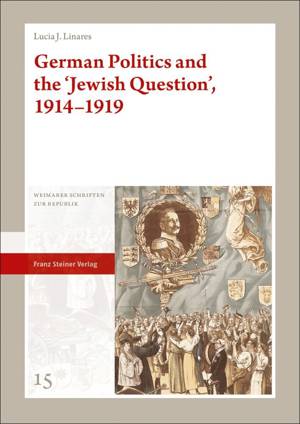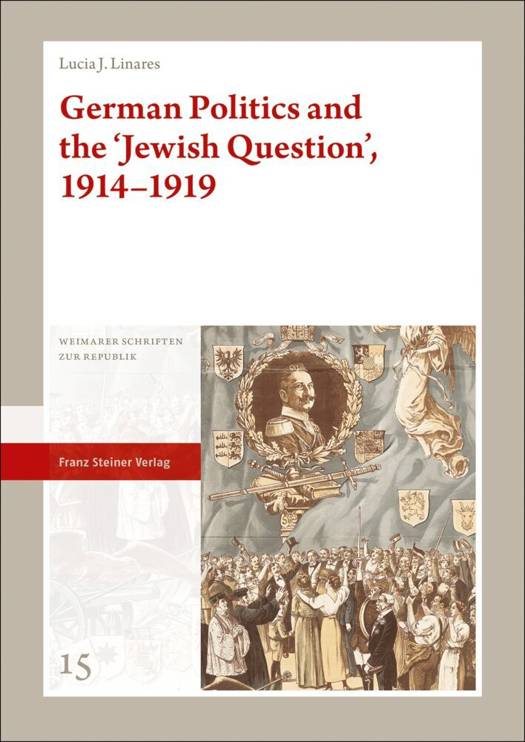
Door een staking bij bpost kan je online bestelling op dit moment iets langer onderweg zijn dan voorzien. Dringend iets nodig? Onze winkels ontvangen jou met open armen!
- Afhalen na 1 uur in een winkel met voorraad
- Gratis thuislevering in België vanaf € 30
- Ruim aanbod met 7 miljoen producten
Door een staking bij bpost kan je online bestelling op dit moment iets langer onderweg zijn dan voorzien. Dringend iets nodig? Onze winkels ontvangen jou met open armen!
- Afhalen na 1 uur in een winkel met voorraad
- Gratis thuislevering in België vanaf € 30
- Ruim aanbod met 7 miljoen producten
Zoeken
Omschrijving
Lucia J. Linares offers the first sustained examination of the ways in which questions about German-Jewish citizenship and religious, national identity - namely the Jewish Question - shaped the politics of Imperial Germany in its final years, influencing the processes of parliamentarisation and democratisation. The Jewish Question still tends to be interpreted with hindsight, that is, in the context of the Holocaust and from a social or cultural historical perspective. While considering the short- and long-term effects the Jewish Question had on the rise of German antisemitism, this new study stresses its contingency and ambivalence. Jewish questions, this book argues, revealed the paradoxes of German state-building and the difficulties of breaking down older forms of corporate identity for the sake of national-cultural homogeneity. Linares presents a new interpretation of the role that the problem of German Jewry played in the political debates and decisions that paved the way for the Weimar Republic.
Specificaties
Betrokkenen
- Auteur(s):
- Uitgeverij:
Inhoud
- Aantal bladzijden:
- 233
- Taal:
- Engels
- Reeks:
- Reeksnummer:
- nr. 15
Eigenschappen
- Productcode (EAN):
- 9783515130691
- Verschijningsdatum:
- 2/09/2021
- Uitvoering:
- Paperback
- Formaat:
- Trade paperback (VS)
- Afmetingen:
- 170 mm x 239 mm
- Gewicht:
- 4486 g

Alleen bij Standaard Boekhandel
+ 109 punten op je klantenkaart van Standaard Boekhandel
Beoordelingen
We publiceren alleen reviews die voldoen aan de voorwaarden voor reviews. Bekijk onze voorwaarden voor reviews.











